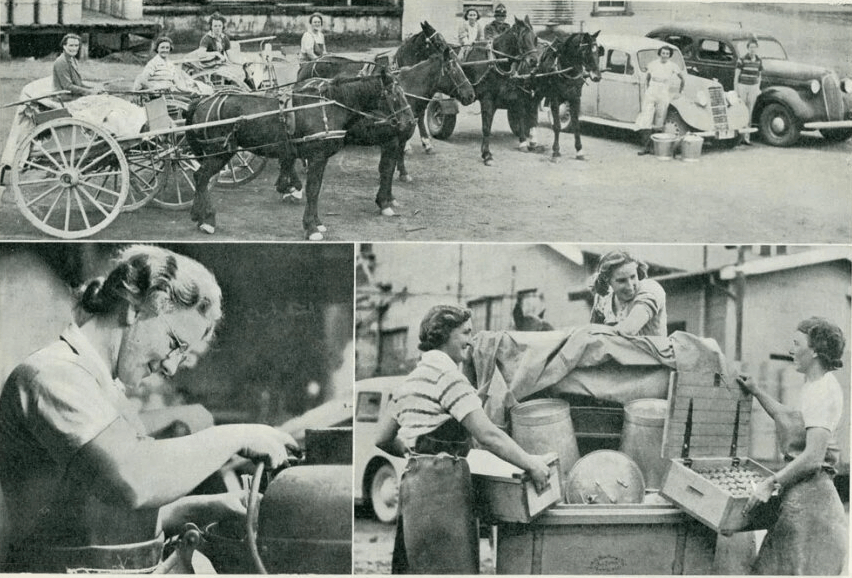
Women herd testers carry on work formerly done by men in the Te Awamutu district.
With men away fighting in World War Two, female herd testers began replacing them. One of the pioneers in this new career for women, Miss Jo Gray, was appointed to the Te Awamutu district.
There were six herd testers in the Te Awamutu area, four men, another girl and Miss Gray. There were 27 farms to test monthly, and herd testers spent a night at each farm, arriving at about 3pm, when milking began. Samples of milk were taken from each cow night and morning. Tests were done at the depot but if the farm was too far from the depot to take it in, the samples were sent in by cream lorry, and the herd tester stayed on the farm for lunch. They worked every day of the week and were given three days leave at the end of each month.
“People have been very kind to us, and at all the farms they have said they hoped we would come back again. They told us it was strange at first to have girls working around the place. Sometimes they have guessing competitions before we arrive, as to what we will look like! At some farms our beds are rather ‘rough and ready,’ but on the other hand, one farm we stayed at had a swimming pool.” said Miss Gray.
The only strenuous part of the work was carrying the five gallon buckets. Sometimes they managed to inveigle the farm hands into carrying them but sometimes not. She knew nothing about herd testing before she went to Massey College, but she had always lived on a farm, and was keen on the life.
Training for troops took place around the district with the 7th Medium Battery camped at the Te Awamutu race course. On the last morning they were early astir, packing up the field kitchen and other gear ready to depart for Arapuni. On the way tactical training was carried out in the field. An area near Kihikihi had been reconnoitred to establish gun positions and an observation post. The observation posts were linked with the gun positions by telephones erected by signallers, and when the guns were in position an imaginary shoot was staged. Following lunch by the roadside, the battery evacuated its position past Kihikihi and continued its journey.
A man missing in the bush on the higher slopes of Pirongia Mountain triggered a huge search. The man had gone out hunting but when had not returned home by nightfall his neighbours assembled and began looking for him. They climbed up one of the tracks that had been used for many years by trampers en route to the top of Pirongia, and then they branched out in the bush. Unsuccessful, they returned home at about 4am, had a couple of hours’ sleep, and then mustered a larger party of searchers, under the direction of the police.
At 10am police made a call to enlarge the search parties. The Te Pahu postmistress, with commendable promptitude, soon had a band of 40-50 settlers assembled to take part, many of them skilled in bushcraft. Around midday faint calls were heard and the missing man was found in a creek bed, trying to follow the stream down into open country. He was very cold and wet, weak from lack of food and exhausted.









